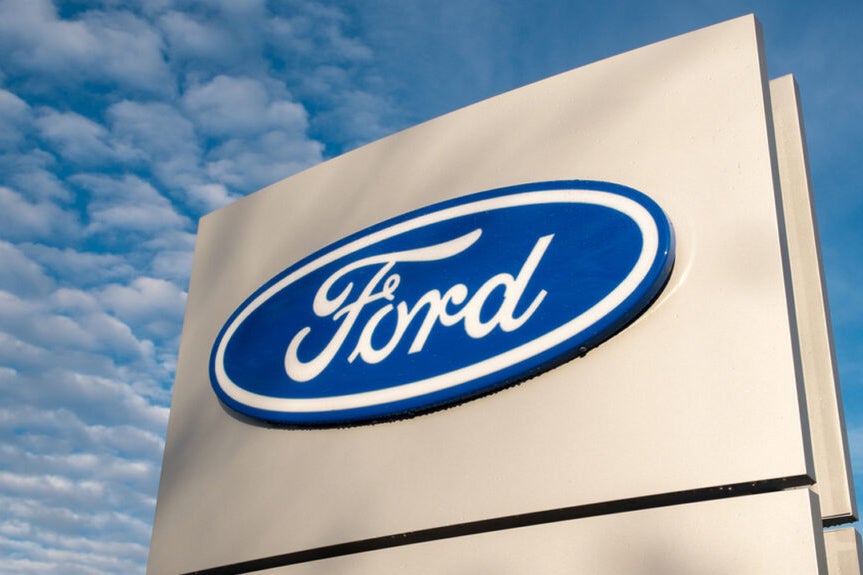Ford Accelerates Growth: A 9% Surge in Q4 US Sales
Ford Motor Company has recently announced an impressive 9% increase in total US sales for the fourth quarter of the year, marking a significant milestone in the automotive sector. This surge not only reflects a robust recovery from the challenges posed by the global pandemic and supply chain disruptions but also indicates Ford’s strategic adjustments to align itself with evolving consumer demands. As the automotive market continues to evolve, this growth serves as a beacon of potential, showcasing Ford’s resilience and adaptability in a highly competitive landscape.
Understanding the Surge: Factors Behind Ford’s Growth
The 9% increase in Ford’s US sales during the fourth quarter can be attributed to several key factors:
- Product Line Expansion: Ford has been actively expanding its product lineup, particularly with its electric vehicles (EVs) and hybrid models. The launch of models like the Ford Mustang Mach-E and the upcoming F-150 Lightning has attracted a new wave of consumers interested in sustainable options.
- Increased Consumer Demand: As the economy gradually stabilizes, consumer confidence has rebounded, leading to increased demand for new vehicles. Ford’s ability to meet this demand with a diverse range of offerings has played a crucial role in its sales growth.
- Strategic Pricing and Financing Offers: Ford has implemented competitive pricing strategies and attractive financing options, making it easier for consumers to purchase vehicles. Such strategies have proven effective in stimulating sales, particularly for first-time buyers and those looking to trade in older models.
- Supply Chain Improvements: Although the automotive industry faced significant supply chain challenges over the past few years, Ford has made strides in securing necessary components. This has allowed the company to ramp up production and fulfill orders more efficiently.
Ford’s Electric Future: A Key Ingredient for Growth
The automotive industry’s shift towards electrification is undeniable, and Ford is positioning itself at the forefront of this transformation. The company’s commitment to investing over $30 billion in electric vehicles through 2025 underscores its dedication to sustainability and innovation.
Ford’s introduction of the all-electric F-150 Lightning and the Mustang Mach-E has not only broadened its appeal but has also captured significant market share in the EV segment. The F-150 Lightning, in particular, has generated considerable excitement, leveraging the popularity of the F-Series trucks while showcasing cutting-edge technology and zero-emission capabilities.
This strategic pivot towards electric vehicles is crucial as consumers increasingly prioritize sustainability. By aligning its offerings with market trends, Ford is not only meeting current demands but also positioning itself for long-term success in a rapidly changing automotive landscape.
Competitive Landscape: Ford’s Place in the Market
The automotive market is highly competitive, with numerous players vying for consumer attention. Companies like Tesla, General Motors, and Rivian are all making strides in the electric vehicle space, making it imperative for Ford to maintain its edge.
Ford’s recent sales surge is a testament to its ability to compete effectively in this landscape. By leveraging its brand loyalty, extensive dealer network, and innovative product offerings, Ford is well-equipped to navigate the challenges posed by both traditional automakers and new entrants in the EV market.
Strategic Partnerships and Collaborations
To further enhance its competitive position, Ford has sought strategic partnerships and collaborations. Collaborations with technology companies for autonomous driving features and battery technology have bolstered Ford’s capabilities in the EV sector.
For example, Ford’s partnership with Google aims to utilize artificial intelligence and data analytics to improve customer experiences and optimize operations. Such initiatives not only enhance Ford’s technological prowess but also build consumer trust and loyalty.
Looking Ahead: What Does the Future Hold for Ford?
As Ford accelerates its growth with a 9% increase in Q4 US sales, the future appears bright. The company’s commitment to innovation, sustainability, and consumer satisfaction positions it for continued success in the automotive market.
- Continued Investment in Electric Vehicles: Ford plans to expand its electric vehicle lineup further, with more models slated for release in the coming years. This commitment will likely attract environmentally conscious consumers, helping to sustain sales growth.
- Focus on Customer Experience: Enhancing customer experience through digital initiatives, personalized marketing, and improved dealership services will be crucial. Ford aims to create a seamless buying journey, fostering brand loyalty and repeat business.
- Adaptation to Market Trends: Staying attuned to market trends, such as remote work and changing consumer preferences, will allow Ford to adapt its strategies accordingly. Flexibility and responsiveness will be key to maintaining its competitive edge.
Conclusion: A Promising Horizon for Ford
Ford’s remarkable 9% surge in Q4 US sales not only marks a significant achievement for the company but also highlights its strategic adjustments amidst a dynamic automotive landscape. By focusing on electric vehicles, enhancing consumer experiences, and fostering strategic partnerships, Ford is positioning itself for a promising future. As the automotive industry continues to evolve, Ford’s resilience and commitment to innovation are likely to play a pivotal role in its sustained growth and success.
In a time when many industries are grappling with uncertainty, Ford stands out as a beacon of hope and progress, paving the way for a new era in automotive excellence. With continued focus on meeting consumer demands and embracing technological advancements, Ford is not just accelerating growth; it’s redefining what it means to be a leader in the automotive sector.
See more Business Focus Insider Team

